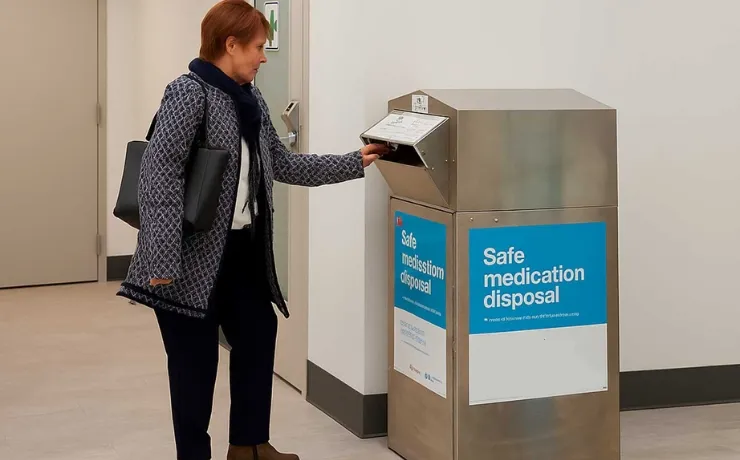How to Dispose of Unused or Expired Medications Safely

Managing medications at home is an important part of maintaining health and safety. Over time, medications can expire or become unnecessary. At Central Pharmacy, we help patients understand how to safely handle unused or expired medications to prevent health risks and protect the environment.
Why Proper Disposal Matters
Expired or unused medications may lose their effectiveness or, in some cases, become unsafe. Taking medications past their expiration date can lead to:
-
Reduced effectiveness, which may prevent the intended treatment from working
-
Potential side effects, especially if the medication has chemically changed
-
Accidental ingestion by children, pets, or other family members
Proper disposal ensures that these risks are minimized and helps maintain a safe home environment.
Common Mistakes in Medication Disposal
Many people dispose of medications incorrectly. Some frequent mistakes include:
-
Throwing medications in the trash without precautions
-
Flushing medications down the toilet
-
Leaving medications in medicine cabinets indefinitely
These practices can lead to environmental contamination or accidental exposure. Water systems and soil can be affected when medications are flushed or discarded improperly.
Safe Ways to Dispose of Medications
1. Pharmacy Take-Back Programs
Many pharmacies, including Central Pharmacy, participate in medication take-back programs. These programs safely collect and dispose of expired or unused medications.
-
Check with your local pharmacy for collection days or drop-off points
-
Some pharmacies offer secure mail-back options
2. Local Disposal Events
Municipalities and health departments sometimes organize community disposal events. These are usually free and provide safe handling of medications for residents.
3. Household Disposal (if no take-back options are available)
If a take-back program is not accessible, follow these steps to dispose of medications at home safely:
-
Remove medications from their original containers
-
Mix them with an unappealing substance like coffee grounds, cat litter, or dirt
-
Place the mixture in a sealed plastic bag
-
Throw the bag in your household trash
-
Remove any personal information from prescription labels before discarding containers
Note: Avoid crushing pills unless instructed, and do not flush medications unless the label or pharmacy specifically advises it.
Special Considerations for Certain Medications
Some medications require extra caution due to their potential risks:
-
Controlled substances: Medications with a high potential for misuse should always be returned to the pharmacy or take-back program
-
Liquid medications: Secure the cap tightly and consider mixing with absorbent material before disposal
-
Medications for chronic conditions: Never give your leftover medications to someone else; sharing prescription medications can be dangerous
Tips for Preventing Medication Waste
While proper disposal is essential, preventing waste is equally important:
-
Check your medications regularly to see if any are close to expiration
-
Only fill prescriptions you will use, and discuss refill timing with your pharmacist
-
Store medications correctly to maintain their effectiveness
-
Keep an updated medication list to track what you have at home
Your pharmacist can assist in reviewing your medications and suggesting ways to reduce waste safely.
Environmental Benefits of Safe Disposal
Proper medication disposal protects the environment. Pharmaceuticals that enter water systems can affect wildlife and contaminate drinking water. Take-back programs and responsible home disposal methods prevent these substances from reaching landfills or water systems.
When to Contact Your Pharmacist
Always reach out to your pharmacist if you have questions about:
-
How to safely dispose of a specific medication
-
What medications are safe to use after their expiration date
-
Options for take-back programs in your area
Central Pharmacy is here to provide guidance and support to ensure your medications are managed responsibly.
Summary
Managing unused or expired medications is important for personal safety, family health, and environmental protection. Key points to remember:
-
Regularly check your medications for expiration
-
Use pharmacy take-back programs whenever possible
-
Follow safe household disposal methods when take-back options are unavailable
-
Keep medications stored properly and avoid sharing them
-
Consult your pharmacist for advice and guidance
By following these practices, you can ensure that your home is safe, your medications are effective, and the environment is protected.
Snippet From our blog
Explore helpful tips, expert insights, and the latest health updates on our blog. Find practical advice and resources to support a healthier life.